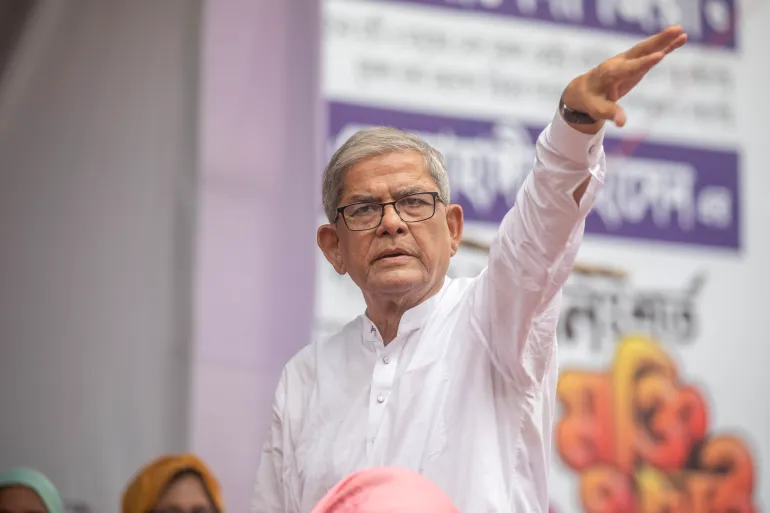The leading opposition figure in Bangladesh, Mirza Fakhrul Islam Alamgir, was detained following mass antigovernment protests in the capital, Dhaka. His arrest came amidst escalating tensions between the ruling party and opposition forces ahead of the country’s general elections scheduled for January. The protests, led by the Bangladesh Nationalist Party (BNP) and the Islamist Jamaat-e-Islami, turned violent, resulting in casualties on both sides.
Alamgir’s detention is part of a broader crackdown on the opposition, with hundreds of activists arrested and former Prime Minister Khaleda Zia, the longtime leader of BNP, effectively under house arrest. Opposition figures are demanding the resignation of Prime Minister Sheikh Hasina, citing concerns about her ability to ensure fair elections after being in power for over 15 years. The government’s economic achievements are overshadowed by rising inflation and accusations of corruption and human rights abuses, including the controversial use of a new cybersecurity law against the opposition.
The recent antigovernment protests, the largest in the country this year, were initially peaceful but escalated into violence. Opposition leaders claim excessive force was used by the authorities, while the police assert they were responding to opposition violence. The situation remains tense as the country approaches the upcoming elections, with the opposition demanding a fair electoral process and expressing distrust in the current government’s ability to conduct free and unbiased polls.

